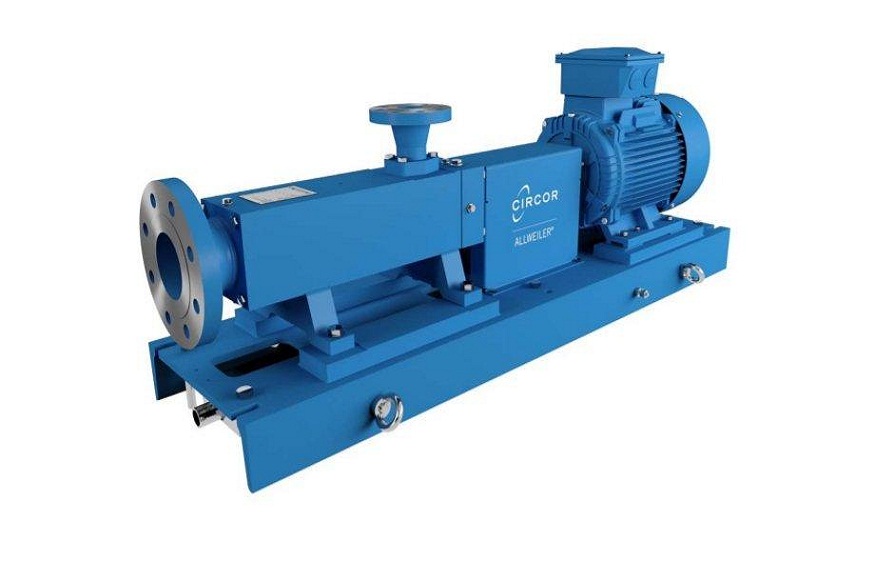lube oil pumps and high temp oil pumps can make all the difference. Whether you’re managing industrial machinery, a power plant, or a processing system, the right oil pump ensures smooth performance, enhances equipment lifespan, and reduces costly downtime When it comes to selecting the right pump for your operation, understanding the differences between.
Both lube oil pumps and high temp oil pumps are designed to meet specific needs, but how do you know which one is best suited for your operation? This comprehensive guide breaks down the key differences and helps you make an informed decision.
What Are Lube Oil Pumps?
Lube oil pumps are specialized devices designed to circulate lubricating oil. These pumps are critical for reducing friction and heat in mechanical systems, ensuring machinery operates efficiently and with minimal wear.
Key Features of Lube Oil Pumps
- High Efficiency: These pumps are designed to maximize the flow of lubricating oil to key components.
- Wide Range of Applications: Used in compressors, turbines, engines, and gear systems, making them versatile for various industries.
- Precision Engineering: Many lube oil pumps come equipped with features like pressure controls and temperature monitoring to provide optimal performance.
Common Industries Using Lube Oil Pumps
- Power Generation: For turbines and generators.
- Manufacturing: For machinery with moving parts like conveyor systems.
- Automotive: To lubricate engines and transmissions.
Benefits of Lube Oil Pumps
- Extend machinery lifespan.
- Reduce maintenance costs.
- Minimize energy consumption through efficient lubrication.
If your operation focuses on systems requiring steady, reliable lubrication to manage friction and heat, a lube oil pump could be the right choice.
What Are High Temp Oil Pumps?
High temp oil pumps are engineered to handle oils operating at elevated temperatures, often above 400°F (204°C). They are commonly used in applications involving thermal oils and high-temperature heat transfer fluids.
Key Features of High Temp Oil Pumps
- Thermal Resistance: Built to withstand extreme heat without degrading performance.
- Durable Materials: Often made with high-grade alloys that resist thermal expansion and warping.
- Specialized Seals and Bearings: Designed to manage the demands of high-temperature operations.
Common Industries Using High Temp Oil Pumps
- Chemical Processing: For heat transfer in reactors.
- Food Industry: For high-temperature cooking or frying systems.
- Plastics Manufacturing: To regulate the heating elements in molding systems.
Benefits of High Temp Oil Pumps
- Maintain fluid integrity under extreme operating conditions.
- Increase reliability in heat-sensitive applications.
- Handle a wide array of industrial thermal processes.
If your operation deals with high-temperature processes, a high temp oil pump may be indispensable for ensuring smooth and safe operations.
Lube Oil Pumps vs. High Temp Oil Pumps: Key Differences
Understanding the differences between lube oil pumps and high temp oil pumps can help you identify which type is better for your specific needs. Here’s a side-by-side comparison:
| Feature | Lube Oil Pumps | High Temp Oil Pumps |
| Operating Temperature | Standard or moderate temperatures | Extreme temperatures above 400°F (204°C) |
| Primary Purpose | Reducing friction and heat in machinery | High-temperature heat transfer applications |
| Material Composition | Focused on durability for lubricants | Heat-resistant materials, such as specialized alloys |
| Common Industries | Automotive, power generation, manufacturing | Chemical processing, plastics, food |
How to Choose Between Lube Oil Pumps and High Temp Oil Pumps
While both types of pumps are highly reliable, the right choice depends on your operation’s specific requirements. Here’s a guide to help you through the decision-making process:
Step 1: Assess Your Operating Conditions
- For lower temperature needs (e.g., turbines, compressors): Opt for a lube oil pump.
- For high-temperature systems (e.g., heat transfer oils): Choose a high temp oil pump.
Step 2: Analyze Fluid Requirements
- Understand the type and properties of the oil or fluid being used in your operation. Lube oil pumps work best with standard lubricating oils, while high temp oil pumps are suited for specialized thermal fluids.
Step 3: Consider Long-term Durability
- For extreme conditions, high temp oil pumps are built to withstand wear and tear under higher thermal stress. Evaluate your system demands accordingly.
Step 4: Think About Maintenance Needs
- Lube oil pumps generally require less specialized maintenance compared to high temp oil pumps, which may involve specific procedures to handle high-temperature resistance features.
Step 5: Consult a Specialist
The final choice can often come down to subtle operational nuances. An industry expert or supplier can provide tailored recommendations based on your machinery and business goals.
Why the Right Pump Matters
Choosing between a lube oil pump and a high temp oil pump is more than a technical decision—it’s an investment in your operation’s efficiency and reliability. Selecting the wrong pump can result in system failures, costly repairs, and downtime that harms your bottom line. On the other hand, choosing the right pump can unlock higher productivity and lower operational costs.
Partner with Experts for Your Oil Pump Needs
Still not sure which pump is right for your operation? Don’t leave it to guesswork. Partnering with a supplier or expert who specializes in both lube oil pumps and high temp oil pumps can simplify the process and ensure you make a confident, informed choice.
Ensuring that your equipment is equipped with the right pump means peace of mind and optimal performance.















+ There are no comments
Add yours